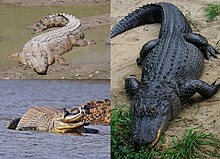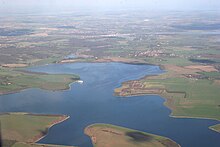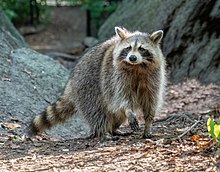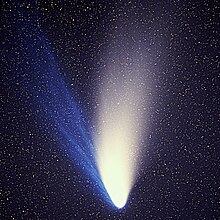Science portal

Science is a systematic discipline that builds and organises knowledge in the form of testable hypotheses and predictions about the universe. Modern science is typically divided into two or three major branches: the natural sciences (e.g., physics, chemistry, and biology), which study the physical world; and the behavioural sciences (e.g., economics, psychology, and sociology), which study individuals and societies. The formal sciences (e.g., logic, mathematics, and theoretical computer science), which study formal systems governed by axioms and rules, are sometimes described as being sciences as well; however, they are often regarded as a separate field because they rely on deductive reasoning instead of the scientific method or empirical evidence as their main methodology. Applied sciences are disciplines that use scientific knowledge for practical purposes, such as engineering and medicine. (Full article...)
Featured article -
Featured pictures
Vital articles
Language is a structured system of communication that consists of grammar and vocabulary. It is the primary means by which humans convey meaning, both in spoken and signed forms, and may also be conveyed through writing. Human language is characterized by its cultural and historical diversity, with significant variations observed between cultures and across time. Human languages possess the properties of productivity and displacement, which enable the creation of an infinite number of sentences, and the ability to refer to objects, events, and ideas that are not immediately present in the discourse. The use of human language relies on social convention and is acquired through learning. (Full article...)
Did you know...
- ... that the calling patterns of the Japanese tree frog have been used in wireless network design, furthering an area of science known as swarm intelligence?
- ... that a nuclear reactor was nearly built at the New York Hall of Science, but the money for the institution instead went to Yankee Stadium?
- ... that the psychological inner space genre was a rebellion against the traditional focus of science fiction on literal outer space?
- ... that the Polish science fiction novel Extensa marked the growing recognition of its writer, Jacek Dukaj, in Poland?
- ... that the Alexander McQueen collection Neptune drew negative reviews comparing the clothing to 1980s science fiction, Xena, and Wonder Woman?
- ... that the Springfield Science Museum is home to the oldest operating projection planetarium in the United States?
Get involved
| This portal needs to be updated. Please help update this portal to reflect recent events or newly available information. Relevant discussion may be found on the talk page. |

|

|
Science News
- 5 November 2024 –
- Researchers at Kyoto University in Japan launch LignoSat, the world's first wooden satellite constructed without screws or glue, into space. It will orbit Earth for six months. (DW)
- 10 October 2024 –
- In its annual Living Planet report, the World Wildlife Fund estimates that wild populations of animal species have decreased over 70% since 1970, with some high-biodiversity areas seeing up to 95% declines. (DW)
- 10 October 2024 – Tomb of Christopher Columbus
- Researchers from the University of Granada confirm that bones lying in the Seville Cathedral in Seville, Andalusia, Spain, belonged to Christopher Columbus. (ABC Spain)
- 9 October 2024 – Nobel Prize in Chemistry
- This year's Nobel Prize in Chemistry is jointly awarded to British computer scientist Demis Hassabis and American chemist John M. Jumper for their work on protein structure prediction, and to American biochemist and computational biologist David Baker for his work on computational protein design. (The New York Times) (Nobel Prize)
- 8 October 2024 – Nobel Prize in Physics
- American physicist John Hopfield and British-Canadian computer scientist Geoffrey Hinton are awarded this year's Nobel Prize in Physics "for foundational discoveries and inventions that enable machine learning with artificial neural networks". (The Guardian)
- 24 September 2024 –
- Scientists from the University of Waterloo announce that they have positively identified bones found on King William Island in Nunavut, Canada, as those of James Fitzjames, captain of HMS Erebus during Franklin's lost expedition. (CBC News)

































































